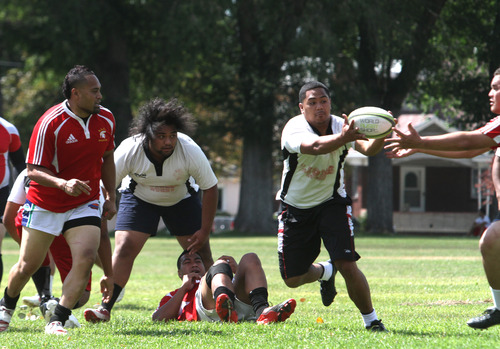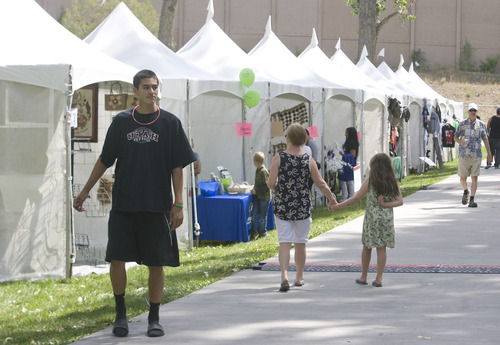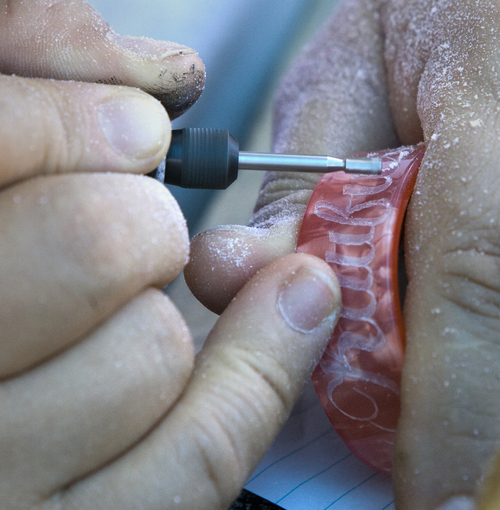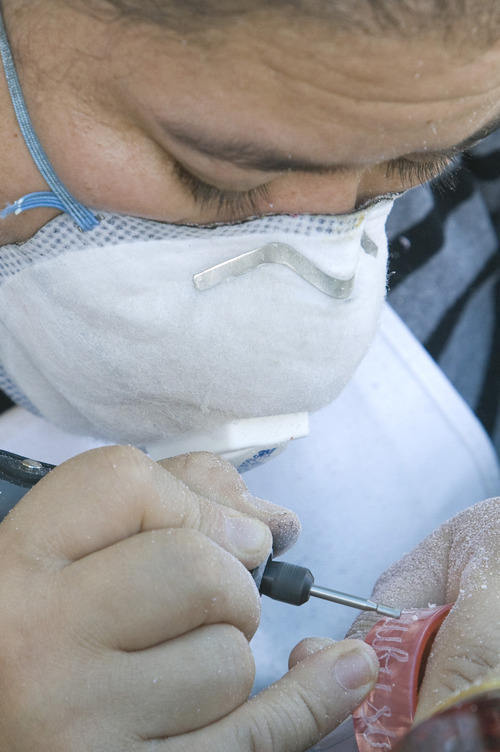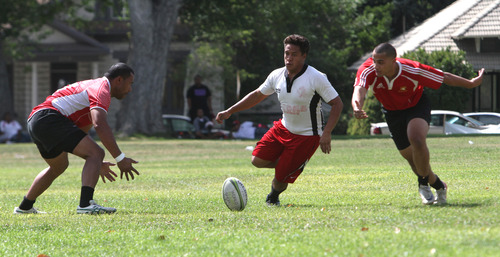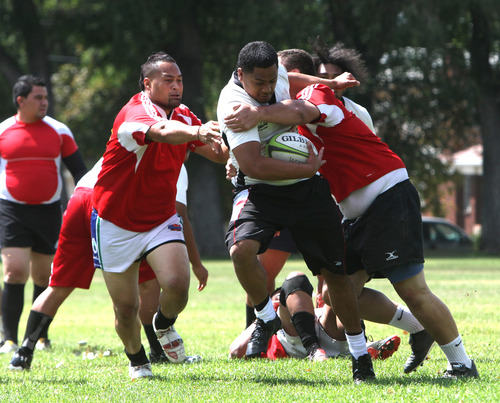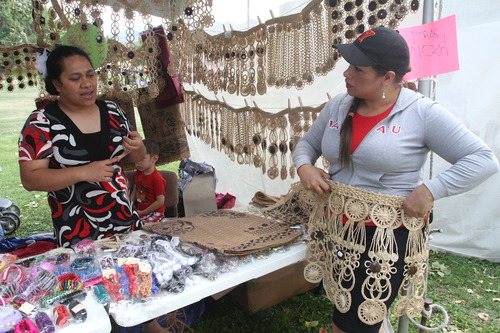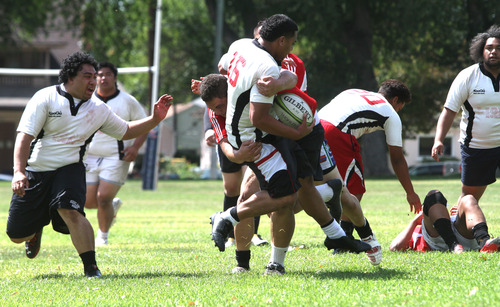This is an archived article that was published on sltrib.com in 2013, and information in the article may be outdated. It is provided only for personal research purposes and may not be reprinted.
For Tongan Americans, it's all about family and community — and food and music and rugby.
Tongans from the Wasatch Front and as far away as California and Texas gathered Friday and Saturday at Salt Lake City's Fairmont Park for the 16th Annual Friendly Island Festival.
It's the one time of year when all Tongans, LDS and Methodists, alike, come together, said Teuila Gerber Lavea, whose forebears were among the first Tongan Americans in Utah.
"Tongans are extremely social. That's one of the tenets of our culture," she said. "In American culture, it's about the individual. In Tongan culture it is about the whole [extended family and culture]."
Utah is home to one of the largest Tongan American communities in the country with some 13,000 and counting.
Faila Kaufusi Fakalata came to the United States in the early 1960s. Her family lived in the San Francisco Bay area for several years before relocating to Utah because it was smaller and because they could be closer to the LDS Temple.
She and her children come to the festival each year for a variety of reasons, but mostly to share their cultural roots and family traditions. It's something like a big reunion.
"We are a very close-knit community," she said. "I can name about 80 percent of the Tongans here in the valley."
Many islanders come from large families. Lavea's mother was one of 19 children. Fakalata is the second of 10 children. "Family is number one with Tongans," Fakalata said.
The festival, sponsored by the National Tongan Amerian Society, headquartered in Salt Lake City, also is a chance for vendors to sell cultural items, such as kiekie, a decorative weaving made of plant fibers that women wear on the outside of skirts for formal occasions. And Ta'ovala, a formal wrap for men and women made from softened tree bark.
Despite her Anglo name, Vicky Love immigrated from Tonga in 1997. She sells traditional island goods at gatherings like the Friendly Island Festival.
"We are reminding the youth of the traditions of the island," she said. "And we like to come here and have fun and eat the food. We really miss island food."
But it wouldn't be a full-on Tongan get together without a rugby tournament.
Supi Mailei organizes sporting events for the National Tongan American Society. Sports, he said, are an essential part of Tongan life.
"It's a lot of fun and it's a social thing where people come together," he said.
Beyond that, rugby and ruby players are, perhaps, the main export from Tonga. Teams in Australia and New Zealand recruit heavily from the island, Mailei said.
But the festival isn't just fun and food. Organizer Susi Malohifoou explained that it's also about health consciousness. The Tongan community has more than its share of diabetes, heart disease and skin cancer.
The festival provides heath care providers to advise on lifestyle changes, check-ups and screenings. And it also promotes exercise for children and adults.


